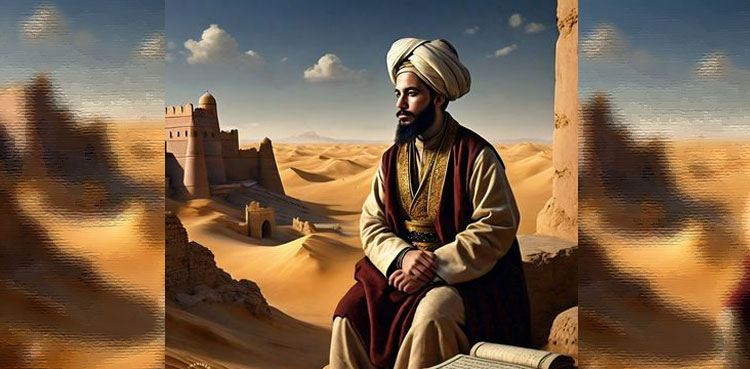The most potent reason Quaid-e-Azam Jinnah provided in support of claiming that Muslims were a separate nation living in the British-administered subcontinent was the observation of the iconic Muslim polyglot Al-Biruni who categorically mentioned that Muslims and Hindus are inherently different people and that they cannot live together.
The strength of the argument was embedded in the remarkable inference drawn by the towering intellect of Al-Biruni who was speaking after acquiring firsthand experience of observing the subcontinent more than a millennium ago.
Al-Biruni is recognised to be the trailblazer of intellectual curiosity and in his quest for truth he stands quite alone with a surprisingly modern scientific methodology and comparative research approach.
He, however, was a well-versed humanist scholar. He believed in the oneness of all higher human civilisations.
Even by the time he was very old and fragile, he continued his enormous output of scientific works right up to the time of his death.
Al- Biruni lived to be eighty years of age writing 183 books and treatises, amounting to
thirteen thousand pages. Unfortunately, only thirteen of these works have survived the last
one thousand years of world events.
In the realm of history Al-Biruni is revered for his famous work Kitab al-Hind. Actually Al-Biruni called his book Research in India. While in Khwarazm, Biruni studied some Sanskrit and all references about India and his main goal was to learn about Hindu astronomy. He was probably disappointed because he could hardly find anything as most of the Muslim sources about India were one-sided.
Sultan Mahmud’s invasions in the 1020s of India thus were geared toward converting the
people of the subcontinent to Islam. Al-Biruni was amazed by a civilisation that
was totally different from his own. He accompanied Sultan Mahmud on some of his expedi-
tions but several times, he stayed behind and continued his research in India. For the pur-
pose of research, he also went to India alone.
Living in the city of Ghazna provided Biruni with the best opportunities, historically and
geographically for pursuing his research on India. Ghazna was an important political and
cultural center of Islam not far from India.
Sultan Mahmud brought precious goods, prisoners of war, and scholars to this city. Thus
Al- Biruni already had access to second-hand information, and so he visited India to secure
first-hand research by himself.
Biruni completed his Kitab-al-Hind in 1030 right after Sultan Mahmud’s death. He was well aware of his research limitations. One of the reasons he gave why it was so hard to penetrate into the essential nature of any Indian subject was that “they differ from us in
everything,” he wrote later.
He believed that his book was “nothing but a simple historic record of facts. I shall place before the readers the theories of the Hindus exactly as they are, and I shall mention in connection with them similar theories.” The world of Islam has seen very few historical studies. But Al- Biruni’s research was the first of its kind, and so far, one of the best.
It is a measure of Al-Biruni’s greatness and ability to make sure to understand and explain an alien culture. His research on India attempted to inform and enlighten his contemporaries about important religious, scientific, and philosophical traditions of the sub- continent, which were unknown to them.
On the last page of his book he wrote that, “His book will be sufficient for anyone who wants
to converse with the Hindus, and discuss with them questions of religion, science, or litera-
ture, on the very basis of their own civilisation. Therefore, we shall finish this treatise.”
He believed that India and South Africa were somehow related. He was aware of the huge
mountain ranges, the Himalayas, and was able to estimate the height of Mount Everest.
More importantly, he believed that the plains of India were under water in a bygone age.
In the Kitab al-Hind Al- Biruni suggested a new theory with regard to population and
resources and he argues that the world needs some sort of ecological balance and economy
of nature pointing out that natural resources are limited and cannot keep up with rapid population growth.
He suggested a type of family planning and offered his own techniques related to contraceptives. He also provided economic reasons for the caste system, respect for cows and prostitution around Indian temples.
He argued that kings used prostitutes as an attraction for their cities for financial reasons. The revenues earned from them as fines and taxes were then spent on the army.
He generalised the differences between educated and uneducated people in every nation. The former strive for abstract ideas, while the latter do not pass beyond the apprehension of the senses without caring for details, especially in questions about reason in religion and laws.


Leave a Comment